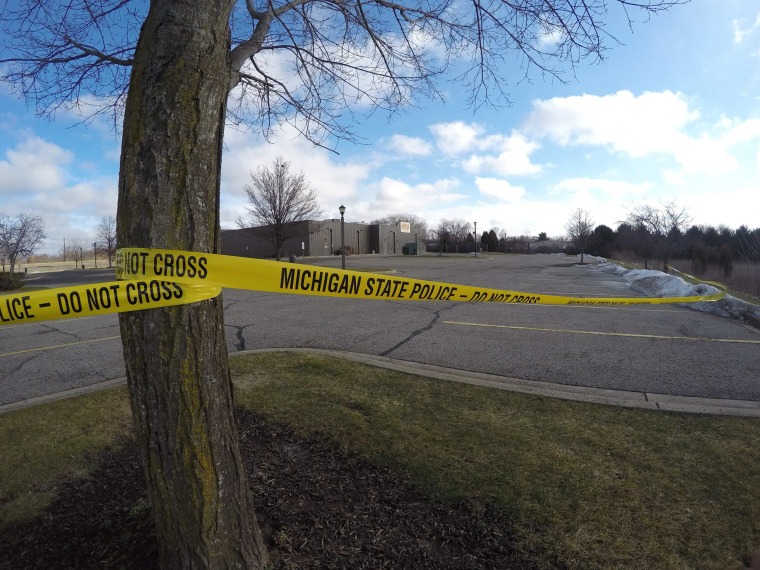Arguing that the driver charged with killing six people in Kalamazoo, Michigan, had no criminal record that would have flagged him for scrutiny, ride-sharing service Uber Technologies said Monday it had no plans to change its screening process for drivers.
Jason Brian Dalton, 45, an insurance adjuster who was moonlighting as an Uber driver, was ordered held without bond Monday on murder charges in the shooting spree Saturday.
And passengers say Dalton continued to pick up fares after he allegedly drove around the city shooting people at random.
Dalton was cleared by his Uber background check on Jan. 25 and had picked up about 100 fares before Saturday, the company said Monday. He had a high rating from passengers of 4.73 out of 5, it said.
Joe Sullivan, Uber's chief security officer, said in a conference call with reporters Monday that because Dalton had no criminal record, a more thorough background check wouldn't have made any difference "in this case."
"I don't think we will change our screening practices," Sullivan said, because "no background check would have flagged this driver."
Uber has come under criticism from regulators and rivals in the taxi and limousine industries over the thoroughness of its driver background checks. Most notably, it has been slammed for not conducting fingerprint checks on prospective drivers.
Margaret Richardson — a member of the Safety Advisory Board that Uber appointed in November as several California government agencies challenged the company's practices — said "it's a false premise to say that fingerprint checks are more accurate."
Sullivan, who was chief of staff to former U.S. Attorney General Eric Holder, said fingerprint reviews generally link to law enforcement agencies, which she said "often include false positives" left over from arrests of people against whom no charges are ever brought.
That "can lead to incredibly discriminatory results," she said, and no prospective driver should be denied employment based on such a broad, unreliable system.
Another member of Uber's safety board, former Boston Police Ciommissioner Ed Davis, said no background check can "foresee the future."
"After an incident like this, we all struggle with ways to stop it from occurring again," Davis said. "But if there was some magic way to have that happen, we wouldn't have increases in active shooters like we have seen."
But Gary Buffo, president of the National Limousine Association, a nonprofit industry group, said earlier Monday that the Kalamazoo case "highlights how the current operating procedures of ride-hailing services fail to protect passengers, drivers and the public at large."
Buffo acknowledged in a statement that it might be "impractical" to expect a large company like Uber to be up to speed on the current emotional state of all of its drivers.
But "it is not unreasonable to expect a real-time review and action plan in place to flag and manage passenger issues and concerns," he said.

